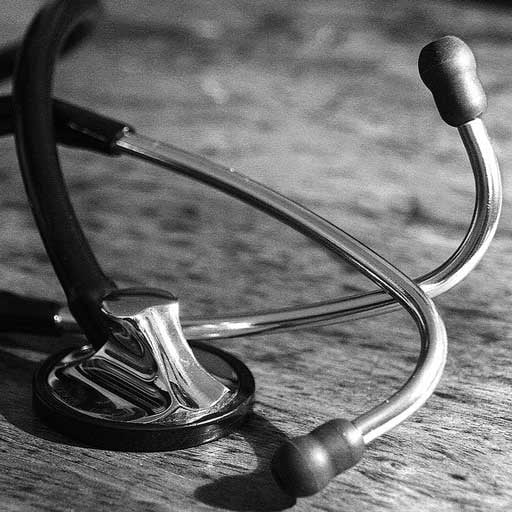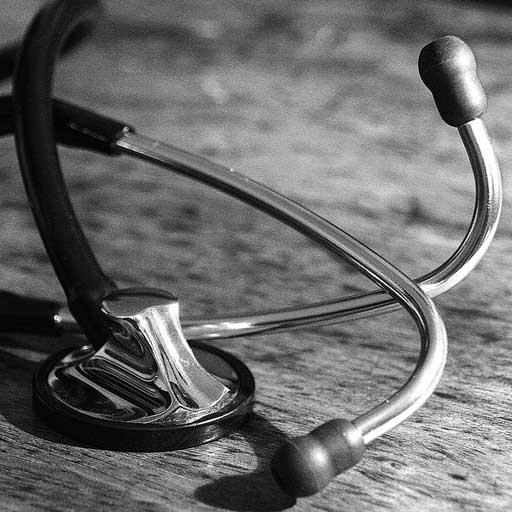
Are you a Hospice Nurse or have you thought about becoming one? Perhaps you’d like to understand what this job entails. This article is written by a Hospice Admissions Nurse and she explains her role very honestly. She’ll tell you what her days and nights are like. The questions she’s asked by families and patients.
Pamela Moss Blais, 55
Hospice Admissions Nurse
Norfolk, Virginia
As a hospice admissions nurse my job is to explain the process to new patients. I’m the very first face they see as they embark on their journey. That’s what I call it, a “journey.” Since I admit patients I don’t carry a caseload. I meet them once and then they float out of my life.
I was an ER nurse for 18 years. I saw patients who were resuscitated whether or not it was ethically correct. I saw families get hope when there was clearly none.
In hospice, the family is your patient. They’re truly living their darkest days. For many of them, this admissions meeting is an overwhelming process. Every emotion that they have inside of them that maybe even hasn’t ever surfaced might come to the top. But I don’t want families to cry.
During that first meeting I don’t say: “So this is what we do for people who are dying.” I say: “Hospice is not about dying. It is about living the remainder of your life how you want to. Not how I want you to, not how your husband, wife, daughters, or sons want you to, and not how the doctor wants you to, but how you want to.”
If you think about the last time you went to the doctor, he probably said, “Okay, this is what I think. These are the tests I want to run.” Nobody asks you, “What do you think? Does this sound reasonable? Do you want to do it?” Nobody tells patients how their quality of life is going to go down the toilet when they get chemo. So it’s sometimes hard for patients to wrap their head around the idea that everything is their choice now, they’re driving the ship. That’s the mission of hospice.
I encourage my patients to live because I want them to know: This is not about assuming the sick role. This is about getting up every day, taking a shower, getting dressed — if you can do that — eating, going out with your family — whatever it is you want to do. I recently met with a patient who was a plane enthusiast. He wanted to go to some Top Gun show in Delaware. I encouraged him to go …
I believe that the people who are most successful at hospice are good observers. They can read vibes and figure out the situation before they say a word. Sometimes I meet with patients in the hospital. Sometimes they’re in a nursing home. Often they are in their home. Before I even begin to discuss hospice, I try to figure out the patient’s faith. Do they even have a faith? I don’t ask directly … I do some detective work. If I’m at their house I look for crosses or iconography. I’ve seen people from all walks of life: Jewish, Buddhist, Jehovah Witness, Wiccan.
I think hard about my physical presentation. I don’t want anything too flashy or festive. Today I have on blush and lipstick and a little bit of eyeliner, but it’s very conservative. So is my dress. I make sure there’s no cleavage exposed or anything that would offend. I’m Jewish, but I don’t wear any religious jewelry. When I see someone dressed in scrubs that have Froot Loops on them or something, I say to myself, “Really? You look like you are in pajamas.”
My dad a pediatric allergist/immunologist in Norfolk. I used to go with him to the children’s hospital to watch. But the pivotal moment came the summer just before I graduated college, this was during the Carter administration. I was sitting by the local pool and overheard some women talking about all the cuts to education and how they might lose their jobs. I had studied special education and taught art at camp for mentally challenged kids, and I loved it. But would I have a job?
Then my brother who is a year older than me broke his neck when he was body surfing in the sea. He was 25 and home for the weekend from college. He suggested that I become a nurse, I spent so much time caring for him.
The other night I admitted a woman who has metastatic bladder cancer. I was instructing the family to give medicine, but I could tell they were nervous. They said they knew how to do it, but the mother was refusing. You could sense the stiffness and the fear in the room. And once I showed them how to do it, it was like an immediate Aha! Immediate relief. Because they realized, I can do that. I did that. These little tiny steps are big.
There’s so much information that has to be explained, I have to use my words very carefully. I want them to know there is a light. I want them to see that and feel it when I do my mission.
Sometimes the family members will ask, “Well, what do I say to my mom? I can’t say, ‘Hey how was your day?’ I can’t ask questions about the future.” I say, “Talk about the past. Talk about stories, trips you went on together. Ask them to tell you stories you have never heard. Talk about fun times. That’s how you comfort your loved ones when you don’t know what to say.”
There was a patient I admitted who had two daughters who work in the health-care field. They said something like, “I checked her blood pressure.” I said, “Why did you do that? I don’t want you to feel you have to assume the role of a nurse. I want you to be the daughter.”
I want to know when I leave the house or the hospital or the nursing home that the family and the facility staff feels okay. Not great. Because they’re not going to feel great. But that they feel okay with the situation and that if anything happens, they’re going to reach out to us and we’re going to be there. If you sense a problem, even if it’s tiny, even if you’re not sure it’s a problem, call us. We would rather you call us 20 times a day with a little tiny problem than let it escalate.
I spend a lot of my time alone in my car, traveling to see patients. Sometimes I’m putting in over 100 miles a day, driving all over Virginia. On an eight-hour shift, I usually process two admissions. On a 12-hour shift, I can do three.
I’ve been in the trenches. I’ve worked in labor and delivery, I’ve worked in the pediatric ICU, I’ve worked in Medserv, I’ve worked in home health, I’ve worked for a cardiologist in an office setting. I worked in the ER. You can’t be a nurse unless you care about people. It’s exhausting in every way. Spiritually, psychologically, emotionally. Nursing has been my life. This is the unfortunate thing about nursing. I love nursing, but it’s extremely hard to find a work-life balance.
I’ve been a nurse for 25 years and I don’t even make $40 an hour. You’re on your feet for 12 to 14 hours a day, and rarely do you get a lunch or even a bathroom break. Most nurses work their entire career and never get a break. When people say,”There’s such a nursing shortage,” this is why. It’s a struggle for the nursing profession as a whole and they still haven’t figured it out.
My hospice-admissions job is the first I’ve ever had where I actually can say, “Y’know, I’m hungry. I’m going to go to a WaWa and get a cheesesteak.” But still, the only thing that gets me through the work week is that I’m off Fridays, Saturdays and Sundays.
I work Monday through Thursday, 40 hours — on paper. When I come home at night, I start in on the homework. Each admission is two to three hours of paperwork. That’s the killer. I spend the night buried in paperwork.
The company I work for is trying to rethink the flow of the documentation, but some of this stuff is based on federal requirements, the Medicare/Medicaid requirements, and all the insurance companies follow federal guidelines. They’re not going to rework the wheel. These things have to be done right if we want to get reimbursed. There’s no shortcut.
But I cannot work 12 hour shifts anymore. I have a daughter in college and a 15 year old who I rarely see during the week. I told my boss, I need to be home at dinner time so I can get organized, so I can talk to my daughter. She’s a teenager. She needs her mother.
We struggled to be parents. I had seven pregnancies but I only have two children. Being a mother is still my dream. I don’t want other people doing my job. Our other daughter was very sick a couple years ago. That was actually why I left the ER. And I told my husband, “You might put your job before us. But I’m never going to do it. I’ll be working at McDonald’s before I put my job before my family.” Luckily right now, my boss understands the struggle.
A lot of nurses feel like they don’t have value. I will admit it’s hard when you feel worthless. I’ve tried to make an impact with every job I’ve ever done but rarely got accolades. A couple of weeks ago, I really thought about leaving hospice. I’m tired. I’m fed up.
And then all of a sudden, people are telling me I do a good job. People have started copying the way I put my notes in. I got a little promotion and was asked to be a mentor. It’s been hard for me to accept it. It’s just so odd after so many years trying to climb the ranks in health care. I called my husband and said, “Something suspicious is going on.” People are complimenting me. Why all of a sudden now? I took it as a sign that, for now, I will stay in hospice. Maybe I’m truly having an impact.
Sometimes, I’m taking care of people who are my age or younger. Imagine being robbed of your life during your 50s. You have every right to be the angriest person in the world. You’re going to die, you see it. The end of the tunnel — you can see it. I can’t see the end of my tunnel. I’m not dying. These people know it’s coming. It might not be next month, but it’s going to be in the next six months. If you were told today you had six months to live, just think how differently you would look at your life … That gives me perspective. I regularly think, “Is my life really that bad? I’m having a bad day, but is it that bad? Am I this person? Am I dying?”







